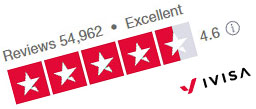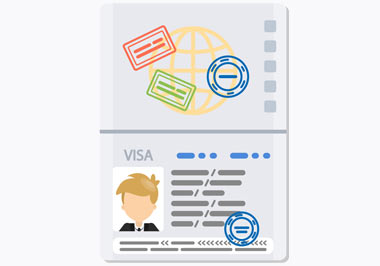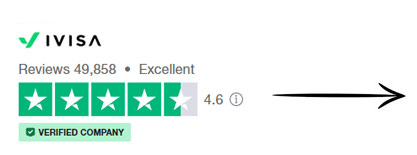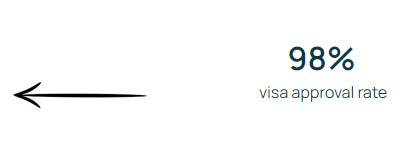India visa cost
Plan your trip to India by knowing the costs of traditional visas and online visas thanks to our advice.
 Fast: Simplified, efficient process.
Fast: Simplified, efficient process.
 Security: information is protected.
Security: information is protected.
 Reliability: 98% approval rate.
Reliability: 98% approval rate.
 Assistance: 24/7 customer support.
Assistance: 24/7 customer support.


When you're planning to travel to India, obtaining a visa is an essential step to take. A visa is an official document issued by the Indian authorities that allows you to enter and stay in the country legally for a specified period. Whether you intend to visit the magnificent monuments, discover the cultural diversity or carry out professional activities in India, a visa is an essential prerequisite for all foreign travellers. It is important to note that there are two main options for obtaining a visa for India: the traditional visa and the online visa. The traditional visa requires a visit to the Indian embassy or consulate in your country of residence, while the online visa, also known as the electronic visa (e-Visa), allows you to apply online, offering a more convenient and quicker process. In the following sections, we'll look in more detail at the application process, the types of visas available and the fees associated with each option, to help you make an informed decision for your trip to India.
India visa price
- Tourist visa price: The price of the standard tourist visa for India generally varies between USD 80 and USD 100, depending on the duration and nationality of the applicant.
- e-Visa price: The cost of a tourist e-Visa for India is USD 10 for a 30-day visa; there are also options of USD 41 for a 1-year visa and USD 82 for a 5-year visa.
- 1 Year Visa Price: The 1 year tourist visa for India costs around 41 USD, allowing multiple entries during the validity period.
- 5 Year visa price: The 5-year tourist visa for India costs approximately 82 USD, offering great flexibility with multiple entries.
- Online Visa Payment Methods: Payments for online visas can be made via credit card, debit card or online payment services such as PayPal, making the process convenient and secure.


The process of applying for a traditional visa to India usually involves going to the Indian embassy or consulate in your country of residence. You will need to complete an application form, provide the required documents such as your passport, photographs, a travel itinerary and proof of sufficient funds to cover your stay in India.Traditional visa fees for India vary depending on the type of visa requested. Fees may also vary depending on the nationality of the applicant and the length of validity of the visa. Here is a general estimate of traditional visa fees for different types of visa:
The price of a traditional visa for India with a validity of 90 days and multiple entries is €105, whether it is for a 3-month, 6-month or 1-year visa. However, it is important to note that visa fees may vary depending on the applicant's nationality and the bilateral agreements between India and the applicant's country of origin. It is therefore advisable to consult the official resources of the Indian embassy or consulate in your country of residence for the most up-to-date and accurate information on visa fees.
The online visa, also known as the electronic visa (e-Visa), is a convenient option for obtaining a visa for India. The application process is entirely online, with no need to visit the Indian embassy or consulate. You will need to complete an online application form, provide the required documents electronically, such as your scanned passport and a recent photograph, and pay the fee online.
Online visa fees for India, including government fees, vary depending on the type of visa applied for. Here are some examples of government processing fees associated with available e-visas:
It is important to note that these government fees are subject to change and may vary. Additional processing and service fees may also apply when applying for a visa online. Please check the official Indian visa services website for the latest information.
By choosing the online visa, you benefit from a practical and cost-effective option for obtaining your visa for India. The fees associated with online visas are often more competitive than traditional visas, making them an attractive choice for many travellers.
For travellers wishing to obtain a long-term tourist visa for India, here is information on the current prices for 1-year and 5-year visas.
Visa price for 1 Year or 5 Years for India
Points to remember
In addition to the visa fee itself, it is important to consider other possible costs associated with applying for a visa to India. These additional fees may include:
When planning your trip to India, it's crucial to factor in the cost of your visa into your overall budget. Here are some tips to help you:
Find out if your question has been answered in the list below
The price of a traditional visa for India can vary depending on the length of validity and the number of entries authorised. For a traditional multiple-entry visa valid for 90 days, the cost is generally €105. However, it is important to note that fees may differ depending on the nationality of the applicant and the bilateral agreements between India and the country of origin. It is advisable to consult the official resources of the Indian embassy or consulate in your country of residence for the most up-to-date and accurate information on visa fees.
The online visa, also known as the electronic visa (e-Visa), has several advantages over the traditional visa. Firstly, it offers a quick and convenient application process, eliminating the need to visit the embassy or consulate. What's more, online visa applications are generally processed more quickly. Online tracking allows you to follow the progress of your application. Finally, online visas can often be less expensive than traditional visas, with competitive government fees.
In addition to the visa fees themselves, there may be additional fees to pay when applying for a visa to India. These fees may include processing fees charged by the embassy or consulate, as well as courier fees if you need to send your documents by post. Processing fees vary according to the nationality of the applicant and the specific policy of each consular office. It is advisable to check the requirements and additional fees on the official website of the Indian embassy or consulate in your country of residence.